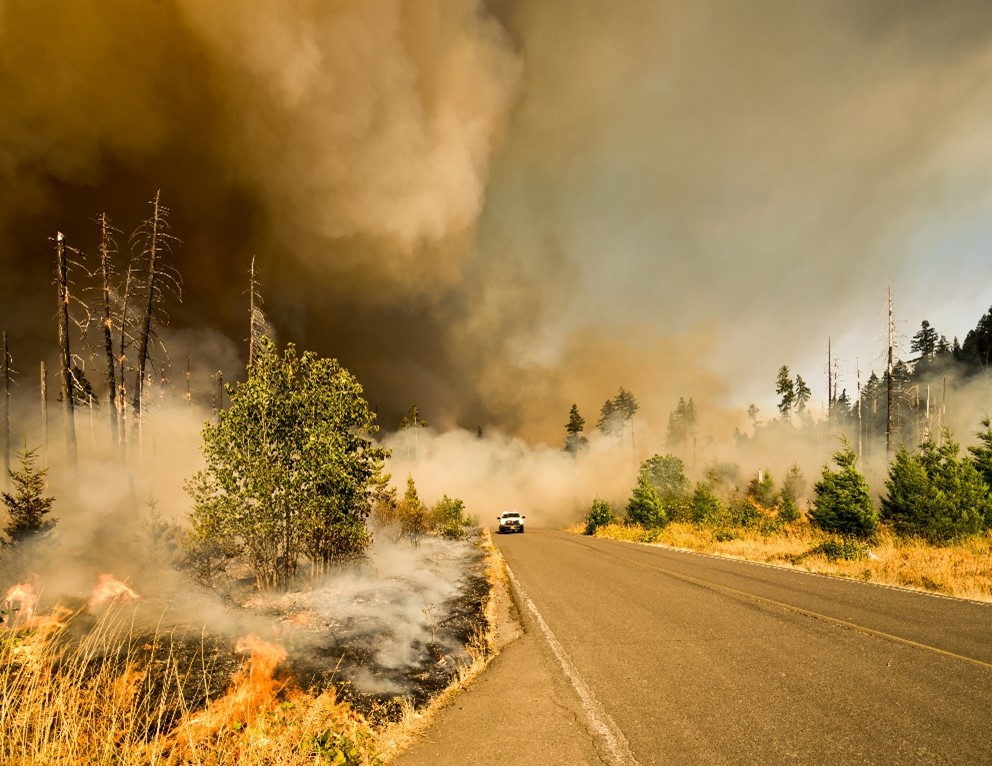
Why do societies not respond to climate change as they should?
Despite awareness of the impending crisis, humanity’s emissions continue to climb, pushing the planet toward catastrophic warming. In today’s guest blog, climate change economist and writer Graeme Maxton considers the greatest problem of our age.
Humanity has a big problem. It also has lots of solutions. Yet the problem is not being solved. It’s getting worse.
Why?
The big problem, of course, is climate change. Societies know what it is, and why it’s happening. They also understand what will happen without change. If the concentration of greenhouse gases in the atmosphere continues to grow, the planet will gradually become uninhabitable.
In 2023, the world passed through the threshold that makes a 1.5ºC increase in pre-industrial temperatures inevitable. Though the full impact of this will not become obvious for another ten years or so, there is nothing that can now be done to avoid it. By the early 2030s, the concentration of emissions will pass through the much more serious 2ºC limit, threatening disruptions that will last for centuries.
Societies have known about these risks for years, and they have known what’s needed to avoid them. The solution is simple. Societies need to stop burning fossil fuels, and stop using nitrates on the land. If they had done this 40 years ago the problem would not have become so serious. But now it’s too late and the changes that are needed to avoid a crisis are so drastic that almost no one wants to do what’s necessary. Quickly eliminating fossil energy, and changing the way humans grow food, is seen as too disruptive.
To try and get around this, some environmentalists have suggested easier options. Degrowth economics, green growth, impact investing, the circular economy, and doughnut economics are examples, ways forward that are easier, say their proponents. But still nothing changes.
Why?
This is the question I’ve been working on for the last few years, because what’s happening doesn’t seem to make any sense. Humans are a species like any other. They care about their survival, and yet they are doing something which is knowingly suicidal.
What has created this blindness to reality?
Some reasons for inaction are obvious. Humans naturally dislike change, especially when the benefits come far into the future and are uncertain, as now. Humans tend to focus on the short term. There are also a lot people with vested interests who block change. Most of the population of the rich world, for example, would lose out in the short term, over the next 30-40 years, even if they would be better off in the long term, if societies adapted as they should. There has also been lots of misinformation spread about the risks, with some organisations deliberately sowing seeds of doubt about how serious the climate problem has become. The fossil fuel industry has been particularly active in this, playing down the risks of planetary warming for decades.
The biggest problem however is more esoteric. It’s about how we see the world.
Everyone has a view of the world, a way of interpreting reality. We each think that our worldview is correct, and internally consistent, even though we know it is different from everyone else’s. My sister’s worldview is completely different from mine, for example, but both of us think we are right. There are also collective worldviews – there is a British view of the world, and a Chinese one, with the peoples of each nation sharing many common ideas.
There is, however, no objectively correct worldview. There is no absolute truth. Everyone’s worldview is simply a set of opinions and values, a set of beliefs, much like a religion.
Worldviews also change over time. In the past, many people believed the Earth was created by God, that it was flat, and lay at the centre of the universe. Today most people think they are more enlightened, thanks to scientific discovery. But this too has limits. What is regarded as a scientific fact by one generation can be different for another. Until comparatively recently, for example, scientists didn’t know there was such a thing as radiation, and they thought the Earth was only a few thousand years old. Now they have a different view.
It is this worldview, this belief system, that lies at the centre of humanity’s inability to respond to climate change. Societies do not do what’s necessary because most people have a worldview which makes change impossible. They believe that economic growth is essential for human progress. They believe that a rising population is desirable. They believe that human inventiveness and scientific innovation will solve most problems. They believe, that as a species, humanity mostly knows what it is doing.
It’s just too hard for most people to consider the notion that these ideas may be wrong, that they might not be true. It’s too difficult for them to accept that their worldview is fundamentally flawed, and that they need to radically change how they think. Such a notion is simply inconceivable to the majority, and no amount of evidence about the risk of climate change can persuade them otherwise.
This suggests that humanity will not solve the climate problem, at least until there is no other choice. The problem cannot be fixed until people think differently.
______
Graeme Maxton is a climate change economist, writer and member of Population Matters’ Expert Advisory Group.
The views expressed in guest blog posts do not necessarily reflect the opinions and position of Population Matters.
